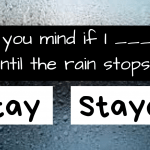Only 4% of the population can score 20/25 or more correctly. Can you beat these odds?How Many Of The Most Confusing Words Can You Spell?
Quiz: How Many Of The Most Confusing Words do you know?
Are you ready to test your visual intelligence? This quiz challenges you to name 23 objects based on their images. Some of the objects are common, while others may be a bit more obscure. You'll need to use your powers of observation and deduction to correctly identify each item.
Don't worry if you get stuck on a few - some of the objects are intentionally tricky. But if you can name all 23, you can consider yourself a visual genius!
So, are you up for the challenge? Take the quiz now and see how well you do!





